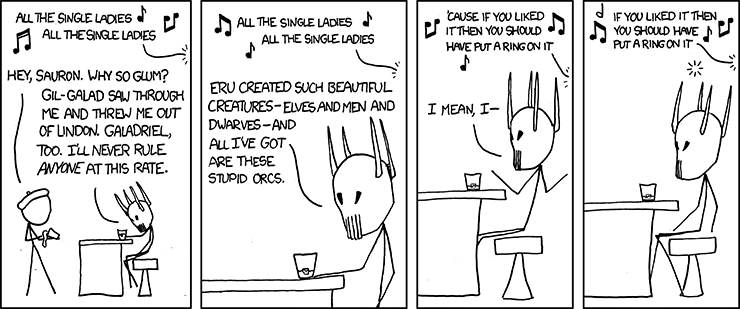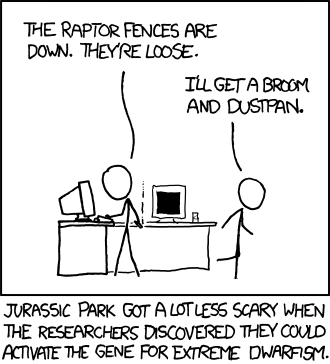An Open Letter to Neil Gaiman
Mar. 6th, 2014 08:00 pmWe don’t know each other, but we have something in common: a former relationship with Scientology. Only I didn’t grow up at its centre, then in East Grinstead, Sussex, the way you did. I got in when I was 18.
I read your piece Storms and how they start, and I get that Jonathan Ross is your friend. That isn’t a problem for me. What is a problem? Is failure to understand that your friend was always a problematic choice for hosting the Hugos, which I will get to.
One of the problems of the culture of Scientology is that you’re not supposed to talk about things that other people do to upset you, lest you yourself get told to get to Ethics and write up everything you’ve done. Or, worse, have to pay for a bunch of sessions to “handle” the whole thing. It takes the stiff upper lip thing to the next level, so it’s hard to hear a bunch of complaints and realize there is legitimacy to them.
Your dad was one of the most problematic people in Scientology. He ordered false information put in US security agency computers. He was involved, though not to the point of being an unindicted co-conspirator, in Operation Snow White, the largest civilian intrusion into US government systems to date. He took over for Jane Kember after she was convicted. Your dad, as Public Relations official for the Scientology’s Guardian’s Office Worldwide, was involved in cleaning up L. Ron Hubbard’s PR disasters, such as the chain locker abuses on the ships, particularly the incidents involving children. One disaster was throwing Mary Sue Hubbard under the bus after she was convicted in Operation Snow White. (She arguably got the best treatment by Hubbard of any of his wives.)
But still—David Gaiman was your dad.
Before we go further, I’d like to say: thank you for being a better person than he was, speaking as someone who was harassed by techniques your dad took a hand in developing.
However, better is relative here. I think the statement you made about your affiliation with Scientology (“As a child, I suppose I was as much a Scientologist as I was Jewish, which is to say it was the family religion. Am I now? No.”) was disingenuous given that a) you married a Scientologist before (not Amanda, obviously) and b) non-Scientologists don’t fork over $35,000 for obscure religious level contributions of benefit only to long-standing Scientologists. Sure, I believe you’re not a Scientologist now.
Still, that conditioning is hard to break. Hubbard and David Gaiman, among others, developed strategies specifically for silencing critics. So I can’t help but wonder if there’s a part of you still stuck in the “what are your crimes?” victim-blaming of critics that your father perfected.
Given that kind of a background, I can understand why you might have overlooked why Jonathan Ross was a problematic choice.
The best explanation I’ve read is Patton Oswalt’s post about rape jokes:
In fact, every viewpoint I’ve read on this, especially from feminists, is simply asking to kick upward, to think twice about who is the target of the punchline, and make sure it isn’t the victim.
Now, with that in mind, let’s look at these ten moments of Jonathan Ross’s. I’ll pick three.
- Heather Mills: kicking downward.
- Ethnic minorities at work: kicking downward.
- Madonna: kicking downward about her child.
What the people tweeting didn’t like? They didn’t want a Hugo announcer to kick downward. They had a reasonable fear that he would.
Look, I get that comedians tend to go too far. It’s how they find out where the edges are. But as a culture, SF/F fandom is still trying to cope with how to stop kicking downward. For that reason, Ross was simply the wrong choice. Oswalt again:
We bomb all the time. We go too far all the time. It’s in our nature. [...]
I’m a man. I get to be wrong. And I get to change.
What I’d like, Neil, is for you to consider one thing: maybe the people who objected to Ross had a valid point. And maybe you just didn’t see that point while reeling at the backlash.
It’s not too late to look again in a new unit of time.
Originally published at deirdre.net. You can comment here or there.






